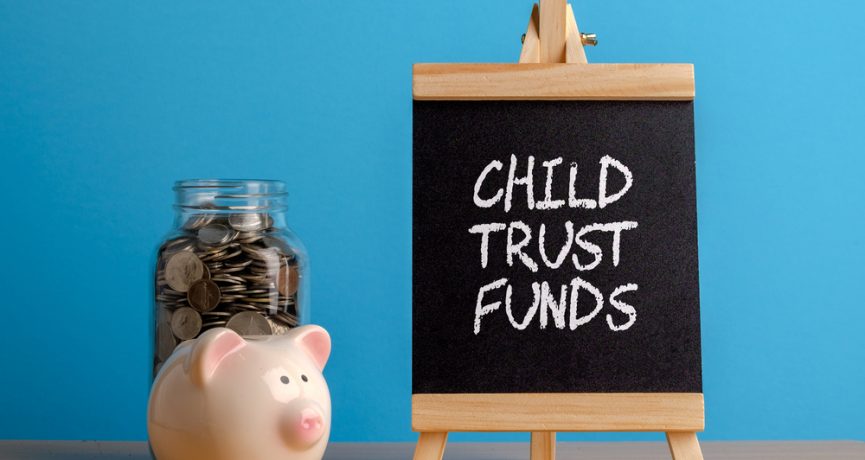|
Hi Heather
My name’s Grace. I’m looking into saving money for my little one so that it can be invested in the same way as government-backed child trust funds. My older one has a child trust fund but I don’t know how to go about opening something similar for my younger child. As I understand it, banks don't offer government-backed child trust funds anymore.
Hi Grace,
Thank you for this message. In podcast episode number two, I talked about how you can save and invest for children in today’s world. All that information is still relevant so please have look at that post for ideas on the best saving strategy. A Child Trust Fund (CTF) is a long-term tax-free savings account for children. You cannot apply for a new Child Trust Fund because the scheme is now closed. The alternative available for today’s parents is the Junior Individual Savings Account or junior ISA. What is a junior ISA? A junior ISA like its adult equivalent is a tax-advantaged account that can be used for saving or for investing in the stock market. Once you place money into a junior ISA it cannot be withdrawn until your child is 18 and it legally belongs to your child so you would not have control over how that money is used. This is not necessarily a bad thing but it’s something you will need to consider when you’re making a decision. I know a few people that don’t want to use junior ISAs because they don’t want their children having cash that they as parents can’t fully control. Personally, I think that I would still be able to guide my children about the wise thing to do with the money and if they didn’t want my advice that would still be useful information for me to know. My approach is that because you won’t have full control over the money you might want to limit how much you put into the junior ISA so that your child doesn’t have too much money available at the age of 18. The junior cash ISA Saving into a junior cash ISA is like saving into any bank account, it earns a very poor interest rate and is therefore not a great idea at a time when interest rates are so low. A junior stocks and shares ISA The alternative option is a junior stocks and shares ISA. The value of the stock market falls and rises but when money is invested over a long period of time it tends to rise. For example if you are investing for a 10-year period or more you can have a reasonable degree of confidence that your investment pot will produce a good return – certainly a better rate than current savings rates. In podcast episode 2 you will see that my strategy is to invest £4k/year from birth to age 5 and then stop once I have put £20,000 into each child’s ISA. Once I reach that I stop and just watch the money rise and fall. My son’s £20k investment now has a value of £26,000 and he isn’t 6 years old yet. If the stock market enjoys a 10% return on average over the next 14 years he will have just over £100,000 in his stock account from that £20,000 that I invested – that is the miracle of compounding, something Einstein called the 6th wonder of the world. Even if the pot only grows at half that rate, that is at 5%, he’ll still have £50,000 – that’s a princely pot of cash that could be used for university or a deposit on his first home. How to set a Junior ISA up If you want to open a junior stocks and shares ISA there are many brokers you can use. To start off with, I would suggest you look into I have provided you with links to pages that will give you more information on the junior ISA. Personally I use Hargreaves Lansdown for my children. The fee for using the platform is 0.45% per year versus 0.35% at Fidelity. HL have a user-friendly app and have made setting up direct debits so that investing for my kids is easy. The key difference between HL and Fidelity besides the platform fee is that Fidelity also create investment products and may therefore have an incentive to push some of their own products to you. HL aren’t completely innocent though, they earn more if you invest in actively managed funds so they have an incentive to recommend actively managed funds to you. The best strategy is to know what you want to invest in. As a new investor you might want to keep things simple and put the money in low-cost diversified index funds. These are funds that are invested in many companies so you won’t be putting all your eggs in one basket. Here are example of funds that my children are invested in:
I have given you a link to each fund’s page so that you can read more about what the funds are invested in and what the fees look like. I hope this helps you kick start investing for your children. Junior ISAs do not have the government boost that the Child Trust Fund did but they are a very similar product and have much more flexibility attached to them because you can invest in a wide range of products. Even if you start of with a small amount, it will give you some confidence and you will begin to learn how the stock market works. Investing for our children is the path that got us investing for ourselves too. Good luck and keep in touch. Heather p.s. subscribe to my podcast and ask me any money question, HERE - do it now!
0 Comments
Hi Heather
I’m really enjoying your podcasts and have already given a 5 star rating. I am 57 and plan to retire at 60 so love your retirement items. When talking about 4% draw down for retirement income, it’s never clear if the figures are before or after tax. For example 4% of £1m is £40k, but after tax this could be nearer £30k. If you then get a state pension of say £9k, the figure before tax is £49k, but after tax it is nearer £35k. So when you talk about money needed in retirement, do you mean before or after tax? Thanks, David
David, thanks so much for the review! I definitely appreciate it.
First things first, David I am sorry that it’s taken me ages to get a blog post done on this, however, I did respond to your question directly within 24 hours of you asking it so I hope that will make up for the late blog post response to your question which you asked me roughly 3 months ago and 4 months ago by the time this airs on The Money Spot podcast. Turning to the 4% rule… For those that have not ever heard of it, the 4% rule states that if you don’t want your pot of invested retirement funds to run out before you die, the maximum you can take from that pot each year is 4%. This means that if you want an annual income of 40,000 from your retirement pot, you need to save one million (GBP, USD, EUR) – I believe the study was done using American stock market performance but if you invest in a global portfolio it will be heavily weighted towards the US so you can use the 4% rule as the best proxy we have on what a reasonable withdrawal rate is. To answer, David’s question, the 4% drawdown is gross and you would have to pay tax after that. So, if you have £1,000,000 (for simplicity) in your pension pot in a given year, you would draw £40,000 and pay the tax on that. If you are based in the UK, you cannot throw the gross amount drawn from your SIPP or other taxable investment account into listentotaxman.com to get a calculation of your after-tax income because your drawings from your investments are chargeable to capital gains tax so you don’t pay income tax on them but capital gains tax. Capital gains tax rates are different. In 2020, assuming 50% of the £40,000 you draw is capital gains, then your net income after tax would be calculated as follows: Not taxable: £20,000 (this is the portion you actually saved) Taxable: £20,000 (the capital gain) Deduct capital gains tax allowance: (12,300) Taxable: £7,700 This taxable amount all falls into the basic rate band for 2020/21 so you’d pay tax of 10% on it, i.e. £770. If you had a portion in the higher rate tax band even that is only taxable at a rate of 20%. So, out of the £40,000 the net amount received would be £39,230. This is a huge different to what you would have paid if this was income of £40,000 as the net income would have amounted to £30,841. That’s a difference of £8,389 – wow! People on work place pension will be taxed in that way because the DB pension counts as income, you can’t separate it into capital and capital gain. If you are UK based and have reached your state retirement age then you would have an annual state pension. This is taxable to income tax and you can throw the total annual state pension amount that you receive into listentotaxman.com to figure out how much you will receive after tax. State pension is taxable if all your sources of income sum exceed the threshold needed to pay tax. That annual state pension is just over £9,000 so if that’s your only source of retirement income you wouldn’t pay any tax because it’s below the personal allowance of £12,500 – however, if this is you, you probably wouldn’t be the type of person that listens to personal finance podcasts - #JustSaying. A few BIG things to remember though: ISAs If your retirement income is all in your ISA then it is all tax free; not tax needs to be paid. Capital gains tax allowance Current tax rules allow you to have a tax free allowance on capital gains in addition to the tax-free personal allowance SO your tax bill may be much less than you think because your state pension and any other pension income may fall into the regular income bucket and this enjoy a separate tax free allowance. For 2020 the Capital Gains tax-free allowance is £12,300. I don’t know if this will be available when I retire, there’s talk of eradicating it to raise more tax… Early retirement Those that retire very early, and I’d classify anything before 55 as early may be overdrawing if they draw 4% because the study of the 4% rule was based on a 30-year retirement. David, you’re probably okay given you’re 57. Sequence of returns risk Sequence of returns risk analyses the order in which your investment returns occur. If a high proportion of negative returns occur in the beginning years of your retirement, these negative returns will have a lasting negative effect on the balance of your investment portfolio and the amount of income you can withdraw over your lifetime is reduced. This is sequence of returns risk. However, if you have a few years of good returns when you retire and negative returns only occur later, say in the middle of retirement, then there’s a lasting positive impact. If this happened to me, I would probably stop drawing income from my retirement pot for 2 or 3 years and live off non-stock market income, e.g. if you have cash pot set aside, I’d deplete that first; or I’d consider getting a part-time job; or for those fortunate enough to have rental income, you can live on that and give your investment portfolio time to recover. I think that’s all the main stuff. To summarise:
I hope this answers all your questions and I additionally hope that I threw in a few thoughts that you hadn’t considered. Heather p.s. subscribe to my podcast and ask me any money question, HERE - do it now!
Hi Heather, my name's Kimberley. My husband and I have worked hard to build a financial safety net for our family.
We both come from modest backgrounds and weren’t taught much about money so we’ve had to figure everything out on our own and made quite a few mistakes along the way. Do you have any tips we can use to teach our children about managing money so that they make far fewer mistakes than we did? Thank you!
Thanks Kimberley, this is a brilliant question. As a mum myself, setting my children up for a healthy financial future is something I think about periodically. While every child is unique, from my personal experience and my experience of observing others these are the 9 things that I think help children grow up into good money managers.
1. Explain where money comes from early By the time a child is two, or even earlier, they have created an image in their own minds of what money is and where t comes from. Your child might think it comes from your wallet or from a wall in the machine or perhaps even that the plastic thing in your wallet has unlimited purchasing power. What you want your children to believe and know from an early age is that money comes from work. Whether you are employed, self-employed or an entrepreneur in order to earn money some kind of effort has to take place and that effort, be it pleasant or unpleasant, is called work. When I was growing up, my father was a business person and my mother was employed and they showed me two different types of work. Although they both went to work physically every day – one, my mum, was generally free to enjoy weekends although many nights were occupied by trauling through her in-tray which she brought home from work; the other, my dad, generally enjoyed free evenings but spent weekends overseeing his business ventures. These were my examples and your children will observe the type of work their immediate family engages in. 2. Explain that you have had to save for things that you buy When you bring a new expensive purchase home like a TV or a sofa your child might, in their own mind think that these purchases just happen, that they don’t involve much effort on your part. To take away any such thinking, I always tell my son that mummy and daddy had to save for the thing and I explain how long we had to save for it. In reality, sometimes I stretch the truth for example, if we are working ahead of our saving plan I might just save less in a given month and get what I was planning to get later. For example, two months into covid-19 lockdown our 13-inch TV broke so we replaced it with a 65-inch TV – very extravagant, I know – and I told my son that mummy and daddy had to save for a whole year to get the TV. He may not understand fully what the whole saving process entails but that information is sitting in his head and is setting an expectation for himself; that expectation being, when he wants something he needs to save for it appropriately. 3. Make your children practice delayed gratification Delayed gratification is difficult even for adults but I believe that the more it is practiced the less painful it gets. Because things were very expensive in Malawi when I was growing up, my parents only bought us things, including some basic necessities, when they went abroad which was not very often, perhaps every 4 to 6 months, sometimes longer so I often had to wait many, many months to get what I want. Living in England, everything is so much more accessible but I tell my children that they can get what they want on their birthday or Christmas, whatever comes first. This means whenever they want something in shops I can just say, “add it to your birthday list” or “Christmas list” – it helps. As I am writing this article my 5 year old son is watching a YouTube video that’s marketing Paw Patrol toys to him. He has asked for a dozen or so things and because of my usual “add it to your Christmas list” he is writing a very long list for Santa and getting some much needed writing and spelling practice in the process – win-win. 4. Don’t give your children more money than they need I remember when I was in boarding school my father made me write a list of all the things I needed for the coming term, then I’d get money to go and buy those things – snacks, feminine hygiene products, stationery, that sort of thing. On top of this, he gave me a very basic allowance for buying the odd donut from the tuck shop. This taught me two things: how to plan for my needs in three-month chunks at a time and how to resist the temptation to buy too many things from the tuck shop too early in the term for fear my money would run out. I hate to say it but I also became an expert at getting people to “treat me” at the tuck shop and when I say people I mean the guys. Fortunately, they were genuine friends and nothing other than my friendship was expected in return. My negotiation skills probably got a lot of flex in the process – how does one ask without sounding like you are begging…? I could do a course on that. There were peers in high school receiving five times the pocket money I did and I will admit, I was jealous at the time but with hindsight I can see my father’s wisdom in giving us no more pocket money than we needed, he didn’t want to set unrealistic expectations for me and my sisters. 5. Don’t give your children an expectation that you will bail them out If you rescue a child financially that robs of them of a lesson and also robs of them of any incentive to behave responsibly next time. If your child finds themselves in debt, by all means help them write a plan to get themselves out of debt but avoid paying the debt off for them because that will definitely not be the last time you do it. I watched a friend of mine work diligently over 18 months to pay off debts that her mother could have cleared for her at the click of a button. The person that emerged at the end of those 18 months was miraculously different: not only was she debt free but she cut up her credit cards because her experience of paying them off taught her that the pleasure of the purchase was not worth the pain of paying the loan off. She now only buys what she has saved for nowadays. 6. Don’t lend your children money interest-free for anything …maybe only for the deposit on a house (but even that is debatable) Each time I have asked my dad to lend me money he has agreed to lend it to me but at a commercial Malawi rate of interest. Interest rates in Malawi have tended to be between 25% and 35% - so I haven’t taken him up on his offer and have instead borrowed money commercially from banks. Although I am annoyed at the time, I am, again in hindsight, grateful for this approach because it’s let me own my property projects and made my successes feel like my own. It’s forced me to plan and to be prudent about how I spend money. I plan to take the same approach with my children, I will make them take full responsibility for their plans and projects and if I do invest with them, it will be on a commercial basis. They should own their successes. 7. Don’t create an expectation that there will be a large inheritance The need to make a living gets many people out of bed every morning. Those that know they don’t need to work to earn frequently don’t bother. Why would you go through that pain of forcing yourself up if you don’t have to? I heard an interesting stat from The Money Guy on YouTube: apparently, 68% of Americans expect to receive an inheritance BUT only 40% of parents expect to leave one. And I bet, some of those 40% of parents that will leave an inheritance are leaving it to the 32% of children that aren’t expecting it. Who do you thinking is working hard to set themselves up for a good life and retirement, the 68% that expect an inheritance or the 32% that don’t? My children are too young to talk inheritance but when they are they are going to know full well that I plan on spending my money liberally before my final call! 8. Be a good example – this is probably the most important tip The way you handle money will inform your children’s behaviour around money massively. Your actions normalise money behaviours for children. Do you buy on impulse or plan your purchase, are you frugal or a spendthrift, are you anxious about money or just sensible without making it a thing? If you never talk about money then don’t be surprised if your kids turn out to be the type of adults that don’t deal with their money issues at all, they might just pretend the issues don’t exist. Whatever it is you do, your children are watching and they are learning. Teach them to acknowledge how much they have relative to many others. A healthy sense of gratitude may help with any sense of discontentment, you know, because Peter has more toys, more shoes or a better phone than I do… …I know we adults (myself included) struggle with comparison to the Joneses constantly ourselves. 9. Teach your children the basic concepts of money I see the basics of money as come in four categories:
If your child leaves home knowing just these things, they are well ahead of their peers and are more than likely to win with money, here is an example of what I mean, If you like what you’re about to hear get workbook – B. School: for money-wise wealth-bound kids. It’s available in 9 languages! Heather x |
Heather on WealthI enjoy helping people think through their personal finances and blog about that here. Join my personal finance community at The Money Spot™. Categories
All
Archives
September 2023
|
Heather Katsonga-Woodward, a massive personal finance fanatic.
** All views expressed are my own and not those of any employer, past or present. ** Please get professional advice before re-arranging your personal finances.




 RSS Feed
RSS Feed


